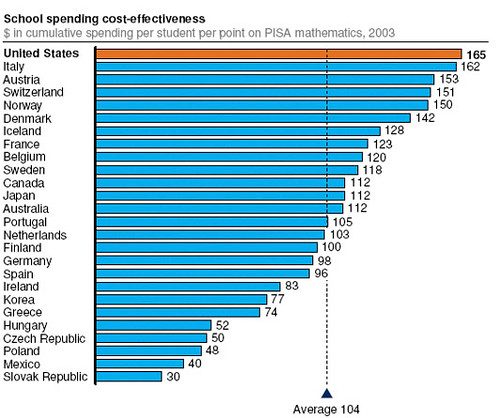As I've noted before, the U.S.'s health-care and education systems share some fundamental flaws: In both medical care and schooling we spend far more than other countries and get substandard results; in both cases, the overspending and poor results occur partly because our decentralized "systems" mean everyone does and measures everything differently, so you can't compare apples to oranges to even find out what works.
The folks at Economix look at this dynamic in education from a return-on-investment perspective:
Education is a form of investment in a country%u2019s labor force and its overall economy. This means that educational shortcomings drag on economic growth. McKinsey estimates that:
If the United States had in recent years closed the gap between its educational achievement levels and those of better-performing nations such as Finland and Korea, G.D.P. in 2008 could have been $1.3 trillion to $2.3 trillion higher. This represents 9 to 16 percent of G.D.P.
Similarly, if the United States had been able to narrow the achievement gap between white students and their black and Latino peers, the country%u2019s G.D.P. would have been an estimated $310 billion to $525 billion higher, or 2 to 4 percent of G.D.P.
Unfortunately, throwing money at the system doesn%u2019t seem to help, either. As it is, the United States gets comparatively little bang for its buck on education spending. The United States spends more than any other country per point on the PISA math exam, and 60 percent more than the O.E.C.D. average:


Sad.